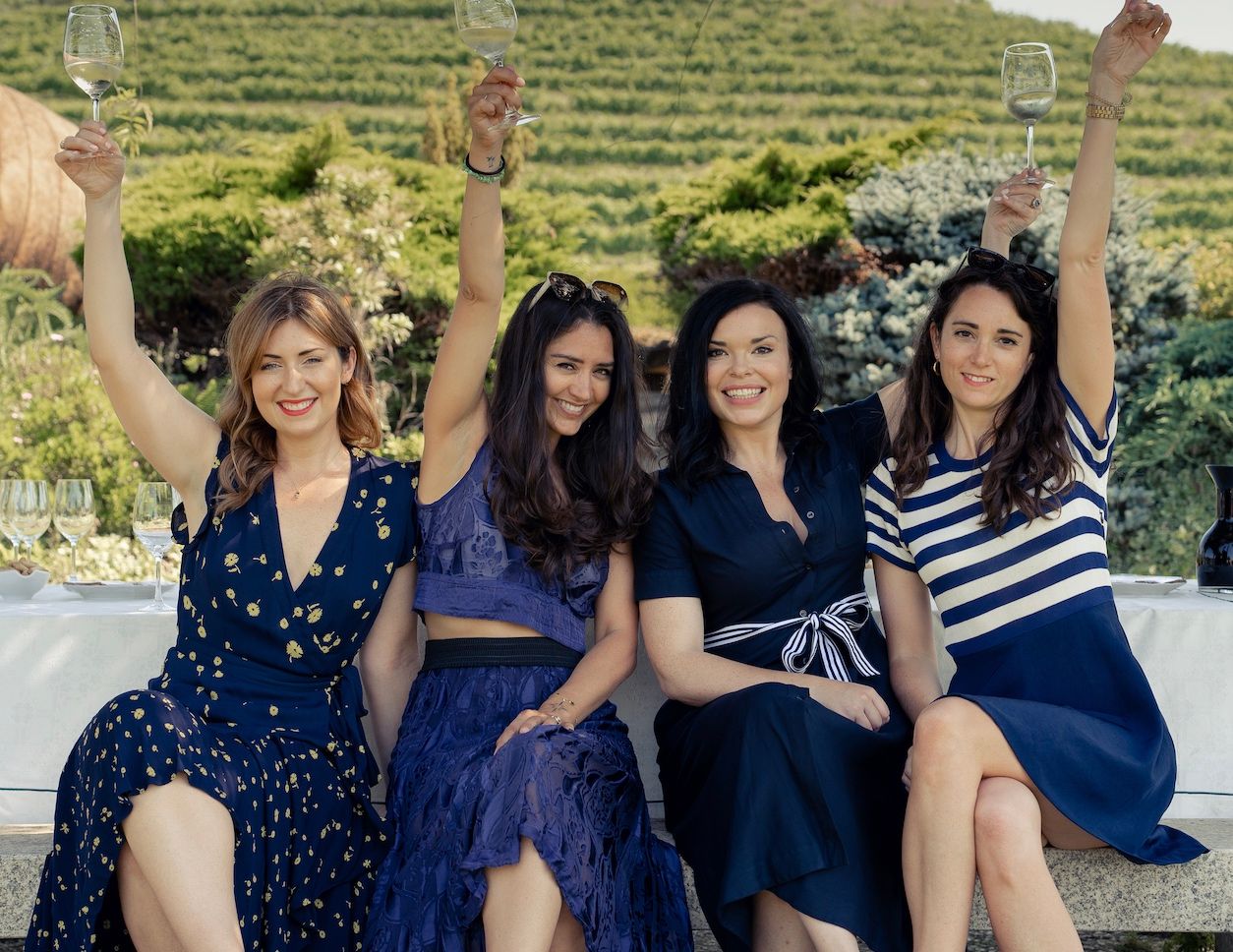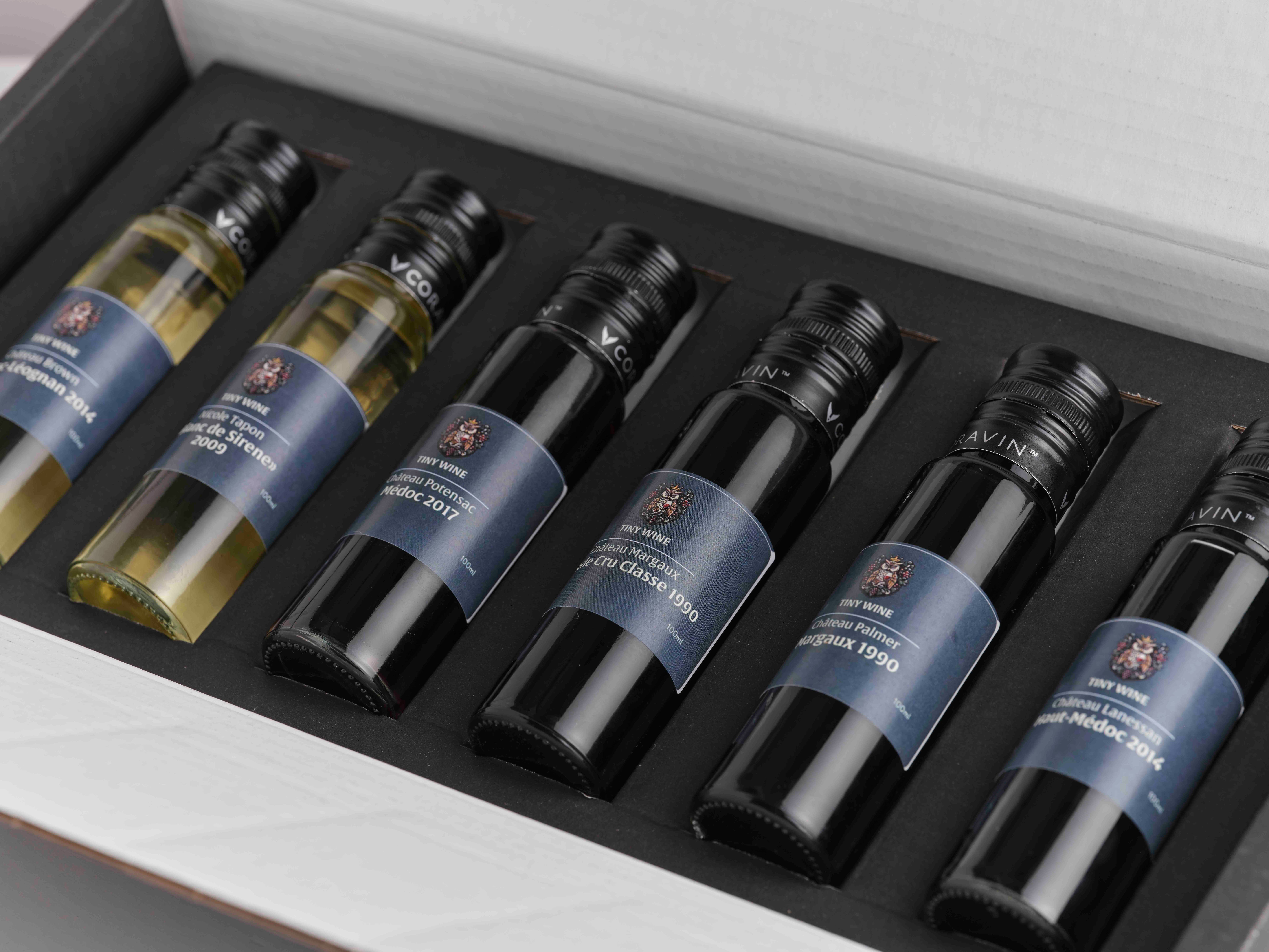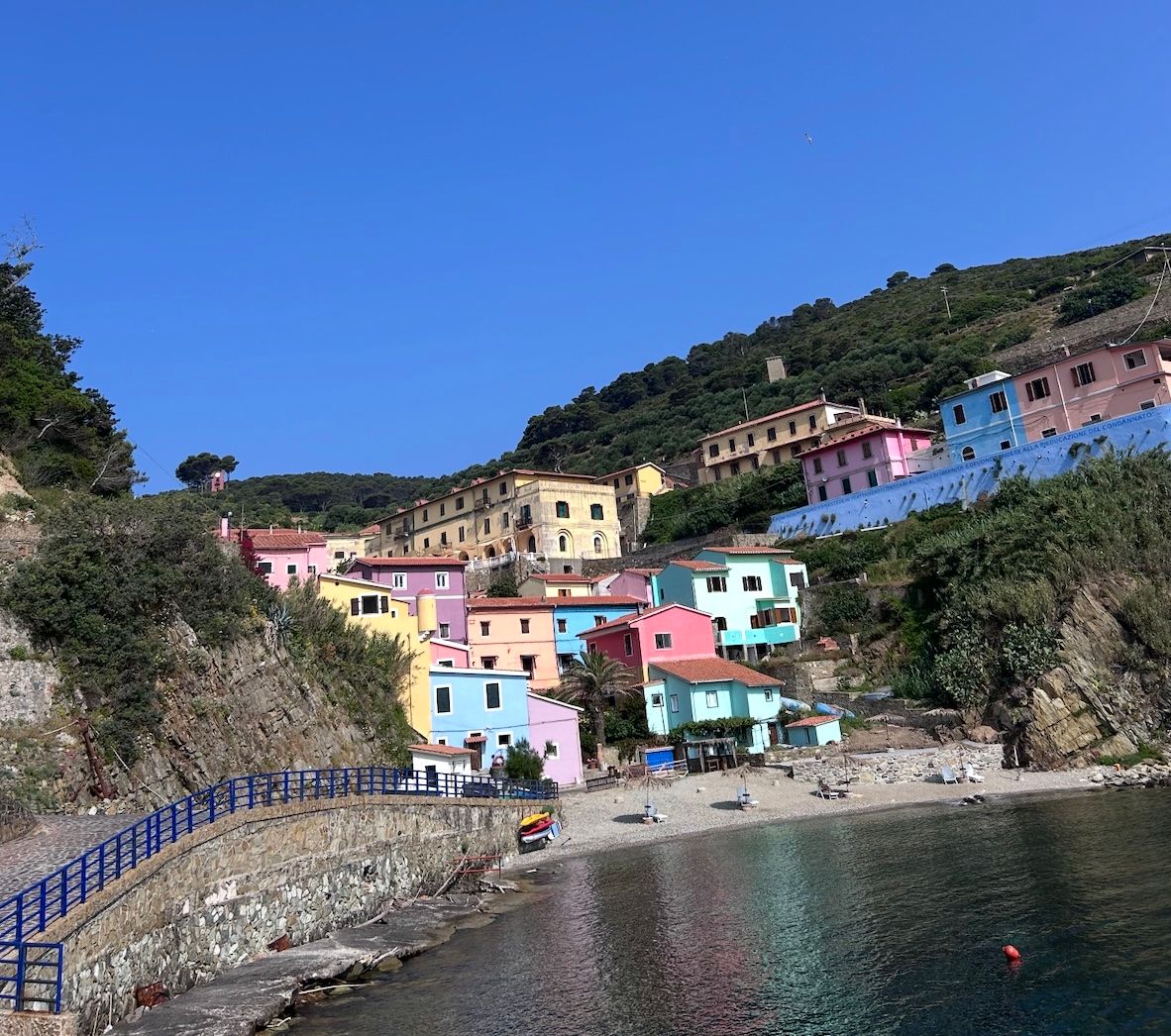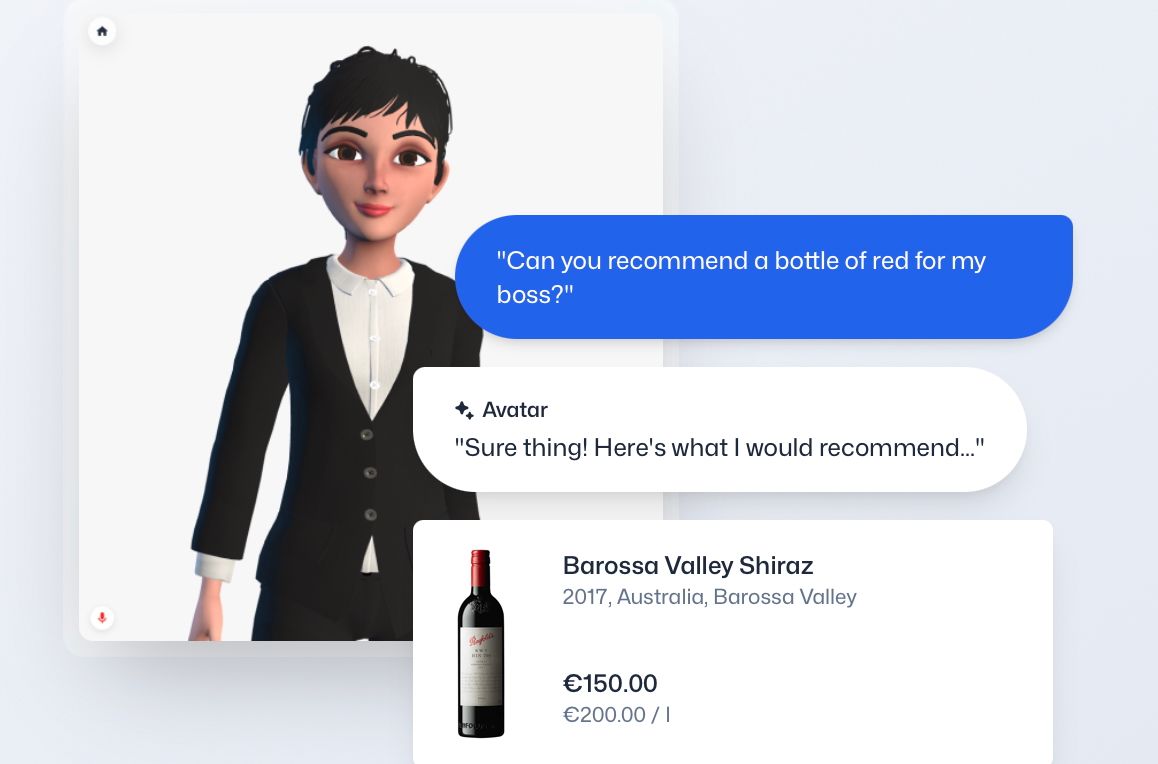“We want to uphold a high level of professionalism, we are all highly ambitious and here for the long-haul, we love this industry and want to help shape it for the future.” That quote from Hannah Milnes neatly sums up what The Wine Collective is all about. Read on to find out more.
For those that don’t know the Wine Collective what is it and what do you do?
Libby Brodie: We are a social media strategy company working with brands and regions to create effective campaigns to achieve their goals. We particularly want to make wine relevant, attract younger, more diverse consumers and improve the visibility of women in wine.
Charlotte Kristensen: We work with wine brands and wine regions telling their stories through varied content on social media and via in-person tastings and experiences.
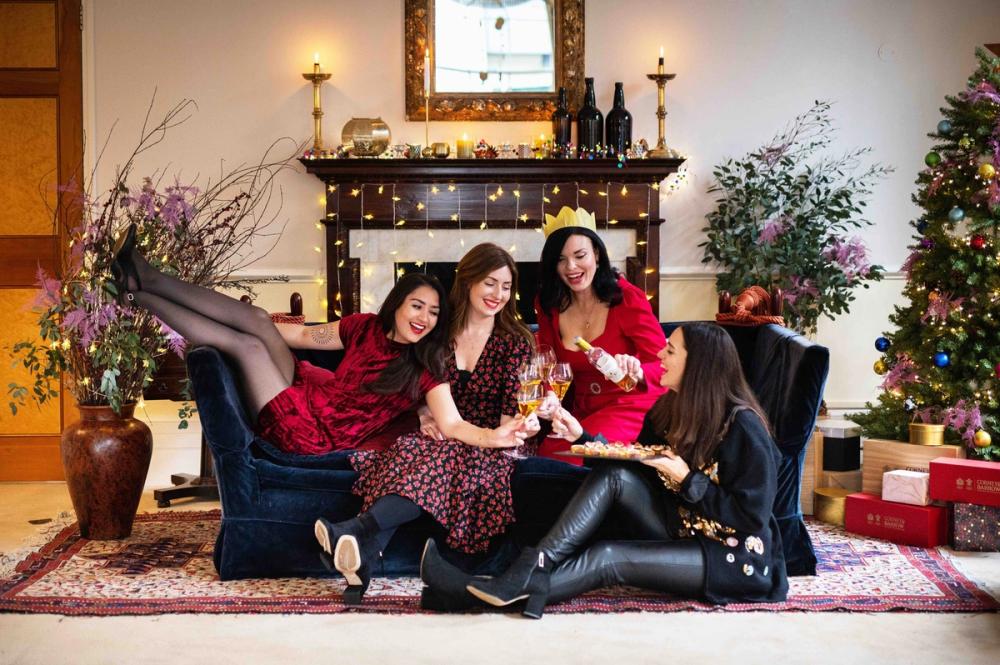
The Wine Collective – from left to right: Sophia Longhi, Charlotte Kristensen, Libby Brodie and Hannah Milnes.
What are your individual backgrounds?
Sophia Longhi: My background is writing, which I studied at university, and hospitality. I’ve worked in bars and restaurants, as well as writing about them, which eventually led me to writing about wine.
Hannah Milnes: I came from working in luxury hospitality, Super Yachts and running ski lodges before I decided to cement a career in wine.
LB:I was an international theatre and film producer for nearly 15 years. I worked at the Old Vic, on the West End, toured shows nationally and globally and had my own company.
CK: my background is law, I worked at an international law firm in the City of London for seven years practicing construction law.
How and why did you want to get into wine?
SL: I’ve always loved the hedonism surrounding drinking wine, but studying it and writing about it was like going through the wardrobe and into Narnia for me. I want to peel back the layers for others too, so that they can take ownership of their wine experiences, rather than being mystified and confused by it all.
HM: For me, it was implanted in my brain from childhood, watching the ceremony of my grandpa selecting a bottle, opening and decanting it. I now own his silver wine bottle holder with a felt bottom to protect the dining table. Some people would think it a bit pompous to have it out but it gives me fond memories.
LB: Necessity. I’d been interested in wine since my early 20s, just reading books and chatting with sommeliers, but it was lockdown closing all theatre down that meant a swift career change into my other passion. I took the lull in live events to study WSET level 1-3 in six months, during which time it turned from a hobby to an obsession, so I launched Bacchus & Brodie Wine Consultancy in 2021.
CK: I lived close to Borough Market in my twenties and food andcooking became my escapism from long days in the office. My love of food and restaurants led me to wine. After I studied WSET 3 I was hooked and decided to leave the corporate world for wine.
How did you all meet and decide you wanted to work together?
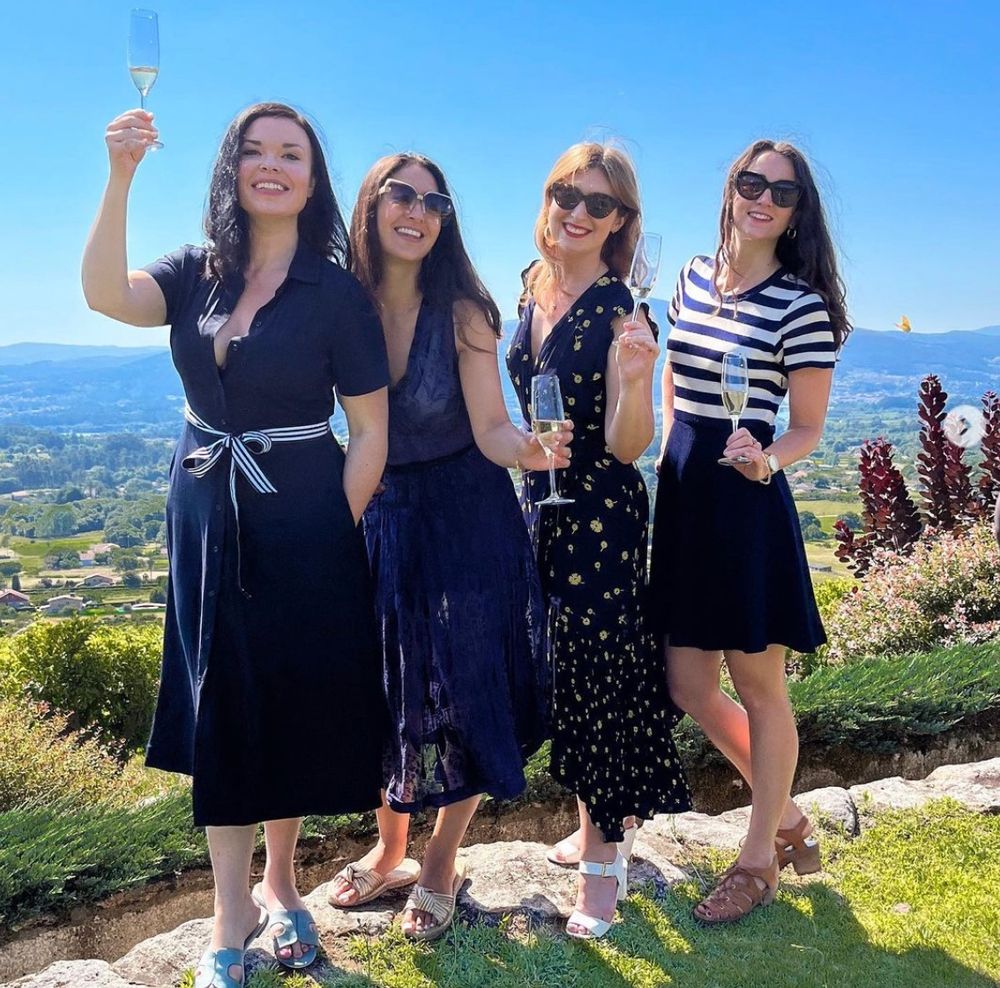
One for all and all for one…
HM: It happened very organically. Most other content creators in the UK have nine to five jobs. We bonded sharing the highs and lows of wine freelancing.
CK: We were friends and confidants for a while before we started working together. We shared tips and advice on navigating freelance life. Then an opportunity to work together on a campaign arose in late 2021 and once it was confirmed we decided to launch The Wine Collective on International Women’s Day 2022. It was quite spontaneous really.
LB: Instagram. Instagram was a pandemic saviour for me. I didn’t want to bore my friends with bottle shots and tasting notes, so I started an anonymous wine account and started chatting to fellow wine enthusiasts on it. Soon we were doing zoom tastings together, discussing wines online. It’s called “social” media for a reason; it was a great connector. And then we were able to meet in real life and kept seeing each other at events, it just made sense to combine forces and try to do something unique and different.
SL: We all met through Instagram. Although, weirdly, Hannah and I went to the same university and we recently discovered that we’d been photographed together years ago, though we don’t remember meeting. I think we all came together through a mutual appreciation of each other’s work and realised we had skills that were complimentary to one another’s.
How do you work together – who pitches for workand how do you decide what projects to take on and how you are going to execute them?
SL: Charlotte is The Boss. Whatever she says goes.
CK: I put a media pack and template documents together for us early on like pitch documents, rate sheets, content plans etc. (my love of documents is a definite hangover from my legal days). They’ve been handy going forward as we have systems and protocols. When a new project comes in we will discuss if it’s the right fit for TWC – I normally have a strong view on this. Once contracted on an individual project, one of us will act as the main point of contact so the client only deals with one person, and that person will feedback to and organise the group.
HM: We take it in turns as to who will be the main correspondent for a particular job, this makes it easier for the wine brand so that they only have to communicate with one of us.
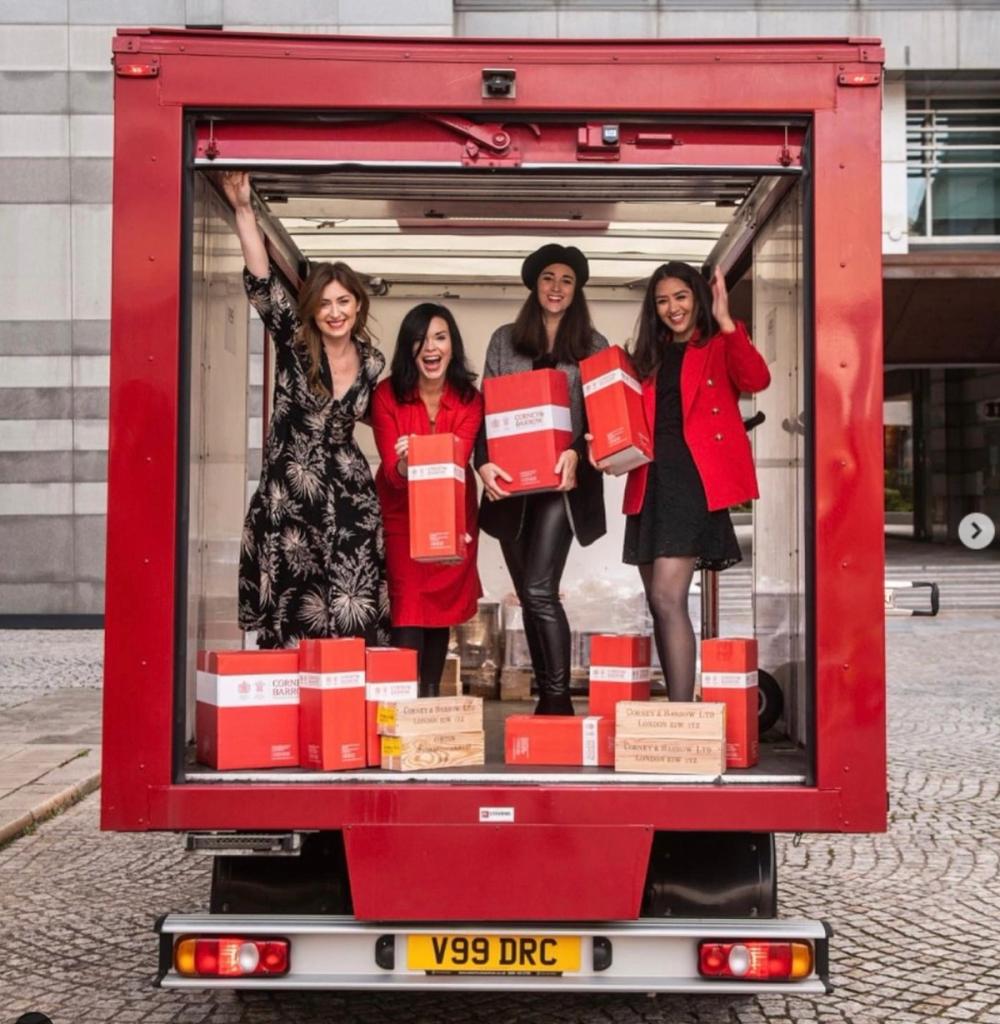
As four professional women The Wine Collective hope to show wine brands, producers and retailers how best to talk to their target audience
What do you see as your USPs versus other media options?
SL: We are the consumer that many wine brands want to reach, so we are in a unique position when it comes to communicating with their target audience.
HM: A lot of brands and regions we have spoken with so far say that they are looking to widen their female customer base, so we are part of their ongoing marketing initiatives to see their wines enjoyed by women. Furthermore, sometimes there is the perception that content creators and influencers aren’t serious wine communicators and are just looking for some free wine. This couldn’t be less true for us. We want to uphold a high level of professionalism, we are all highly ambitious and here for the long-haul, we love this industry and want to help shape it for the future.
CK: We bring a broad skill set and bridge the gap between the trade and consumers and also traditional journalism and social media.
What type of content do you think you are best placed to produce?
SL: The great thing about having a collectively diverse skill-set is that we can produce all kinds of content, from video, to photographic, audio and written content, as well as event production.
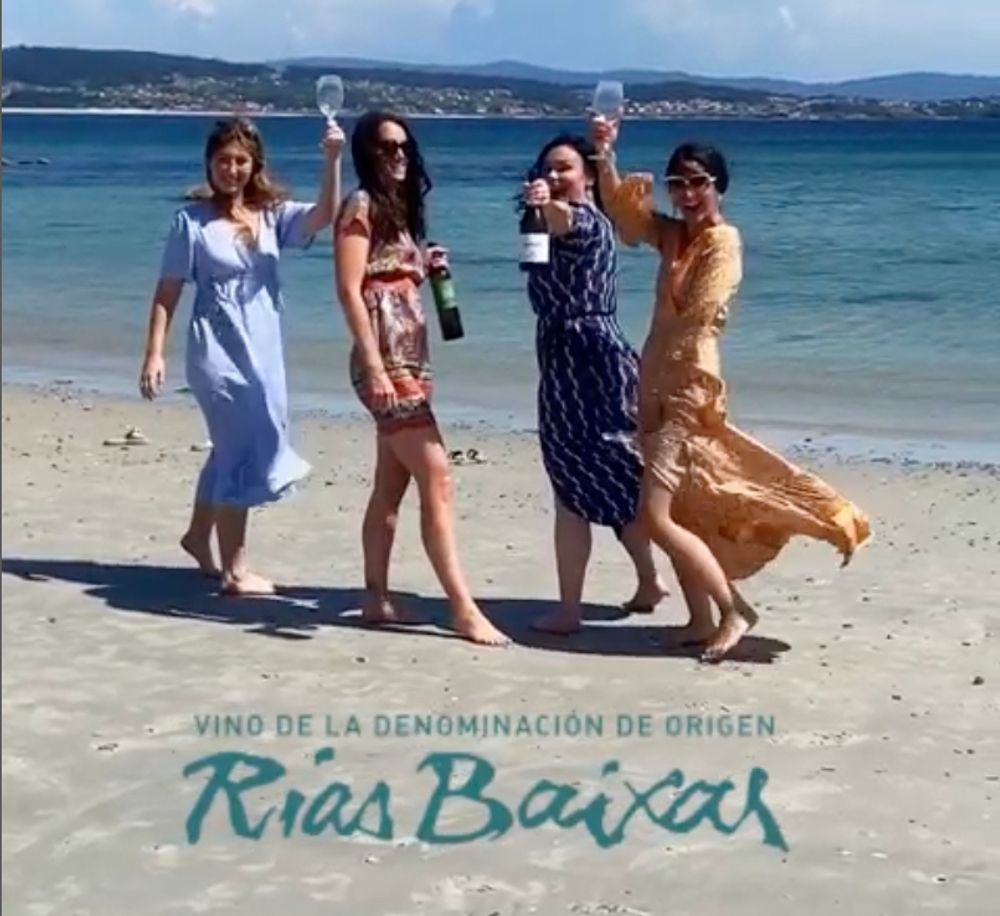
“Our Rías Baixas project was really rewarding for us because it was such a complete campaign,” says Sophia Longhi
LB: We cover a range, from photography, videography and reels of Instagram, to instalives, panel tastings, writing, speaking and hosting in-person tastings and events from lunches to parties. We’re a one-stop shop for marketing with a combined targeted wine-curious audience. Hannah is always pushing us forward with digital too, we’re launching a TWC youtube channel soon.
HM: We like to combine our individual strengths, Charlotte loves to combine food and lifestyle on her IG and her column for You Magazine. Sophia is patient and romantic and is very good at articulating a wine’s character or sense of place in her posts and articles. Libby is always buzzing and full of energy which transmits through her posts and City AM column, the two together because you can follow her weekly life. I concentrate more on visuals and have built up a reputation for creative reels and photographs, for me the more kooky, the better.
CK: We just need to tackle TikTok now…
Who do you see as your target audience? Consumer, wine enthusiasts or the trade? Or does it differ per project?
LB: We all have different styles and therefore slightly different audiences, as well as some overlap, but we’re all in wine, so it is a guaranteed audience of wine lovers. Looking at our insights we engage with all ages and genders though they tend to be mainly 20-50 and more UK and London based.
SL: It definitely varies project to project. As a collective, we straddle the consumer side and the trade side of the industry, so we can be flexible with how we communicate depending on the target audience of the project. That’s not to downplay our appeal to women, though. As a demographic that has been woefully underrepresented in the wine industry, it’s undoubtedly powerful for women to see other women educating and communicating about wine.
HM: Most of the people I interact with are at least wine enthusiasts for wine, if not, they are other wine professionals looking to share wine experiences. Most people want to know about places I’ve been and experiences I’ve had rather than individual bottles, which I think translated better visually anyway.
Any particular highlights: projects that stand out – why do you think they were successful?
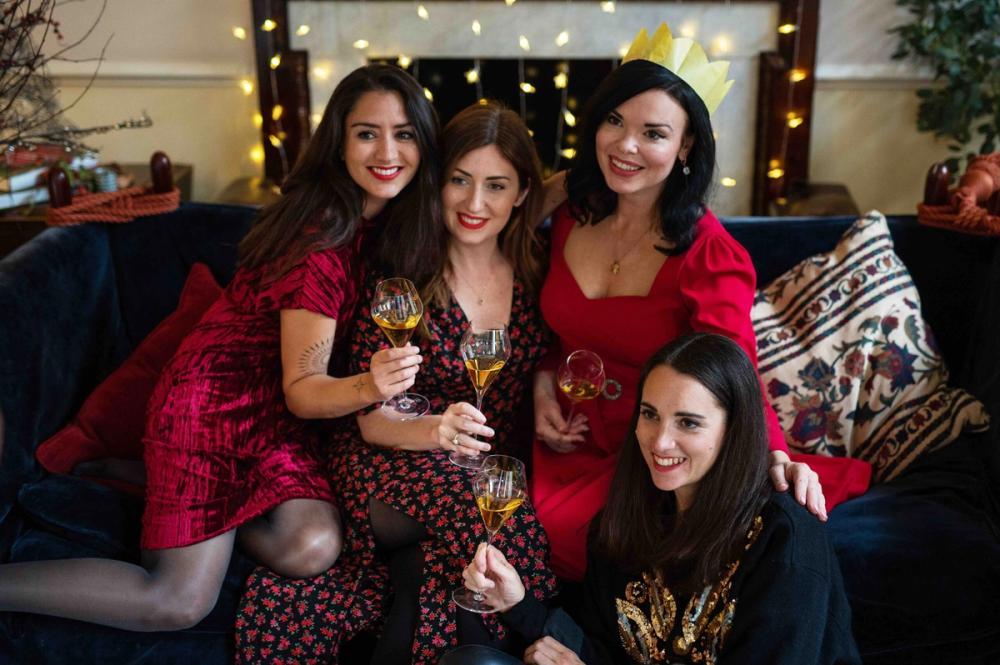
The Corney & Barrow Christmas campaign was one of the Wine Collective’s highlights of the year
LB: I love the range of things we have done and it is always rewarding when you’ve created something innovative or especially beautiful and interesting. We’re not only work colleagues, we’re friends and these are some of my favourite people to spend time with so I personally relish when we get to go away or can spend the day together, like when we shot Corney & Barrow’s Christmas campaign.
SL: Our Rías Baixas project was really rewarding for us because it was such a complete campaign. We shot the content on location in Rías Baixas, totally immersing ourselves in the wine and the culture for three days. After the content had been released in stages, everything culminated in an event in London, where we could share the wines and our knowledge with our guests.
How do you measure success?
CK: A happy client and engaged online and in-person audiences.
HM: With any PR or social media promotion, it can be hard to measure results from just one initiative. Results can be more easily measured from an increase of a brands web traffic or sales over a period of a few months or year. We see ourselves as contributing towards the customer journey and knowledge of the brand. We get a lot of positive feedback, which we collect from the clients we work with. Furthermore, we often negotiate content usage rights as part of our deliverables so clients can repurpose our work at any point.
SL: Every client (or person in general) is going to measure success differently, so we have to work to their desired outcomes. If we reach the outcomes we’ve agreed upon together, then the project is a success.
Do you think being four women offers a different perspective and outlook on what you want to say and how you say it?
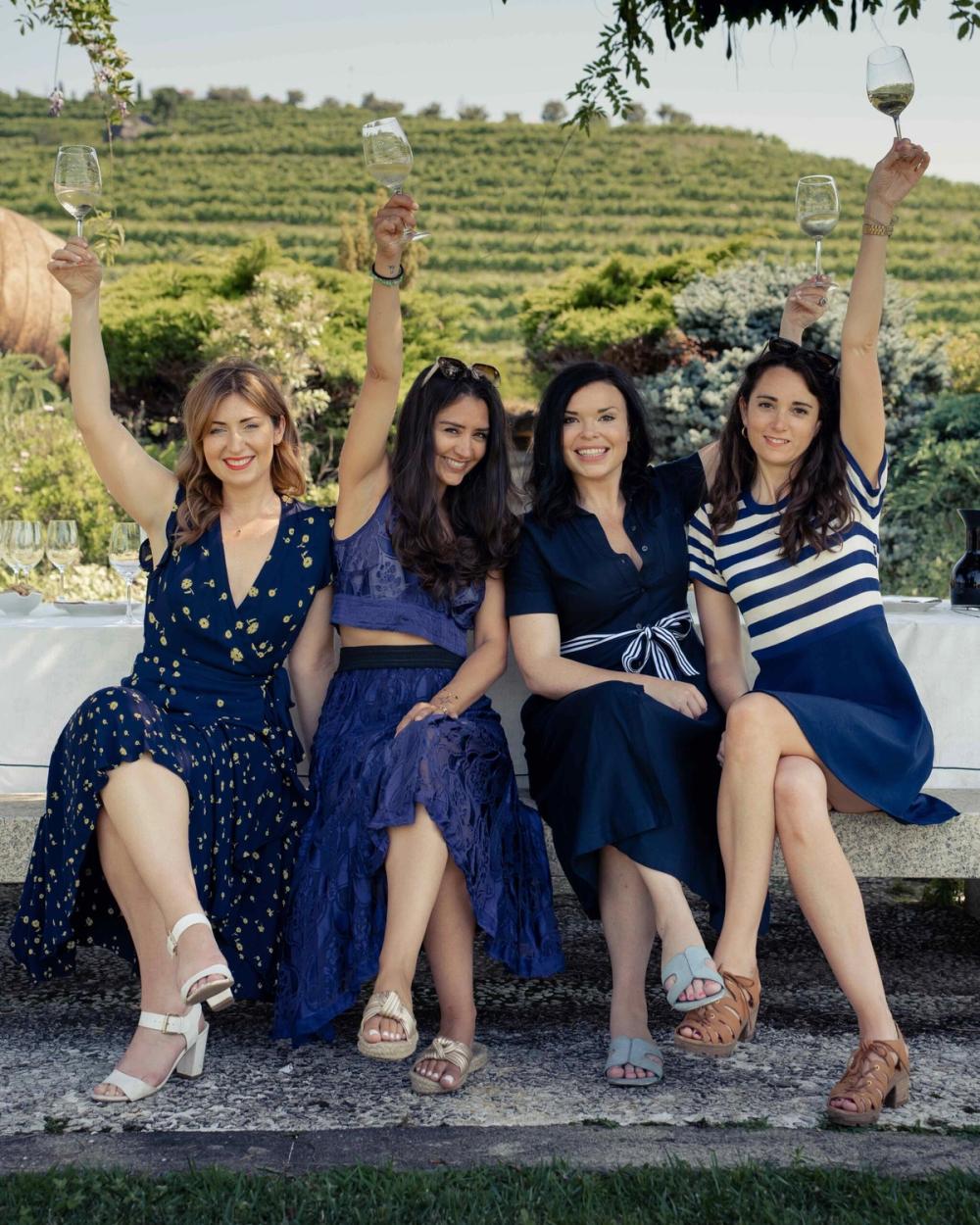
The Wine Collective in Rias Baixas
SL: Definitely. Wine has always been marketed through caricatures of women: the seductive femme fatale or the exhausted “wine mom”, for instance. We are communicating as knowledgeable, educated, passionate wine enthusiasts: we can be fun and serious about wine at the same time.
LB: Absolutely. How many professional groups of four women do you get to see regularly in wine? The fact we’re raising the visibility of women in wine means a lot to me. In fact, there is still sometimes that question about women being competitive or bitchy about each other in the workplace and that’s such a nonsense. It’s time those boring unhelpful stereotypes were put to bed. We need a fresh look at wine and the talents in the industry.
As we look to make International Women’s Day have you had any issues being women working in the wine industry?
LB: I certainly have. I think it stood out to me more because I came from theatre, where most of the people I worked with were women and I was the boss of a company. So, to go into a mainly male room and be a minority was a really odd experience. Women are often sexualised in a way men aren’t, from articles to Instagram posts. Men can be licking a bottle or pretty much naked but there’s a furore over a woman’s tight top. And women get questioned a lot more, be it on their knowledge or their motivations. That said, the majority of people I have met in wine have been encouraging and supportive. I think most acknowledge that a shift towards inclusivity and diversity is a positive step.
HM: Having worked in several wineries as a cellarhand, I can say without doubt that I have had to work harder to prove myself compared to my male colleagues. I also feel like I have doubted myself a lot more too. We’ve had a lot of positive feedback from PR companies who have been excited about the formation of The Wine Collective, some calling us a ‘breath of fresh air’ and much needed new faces in British wine media. We do think this is impart to this being a male dominated industry but also people are excited to have fresh voices.
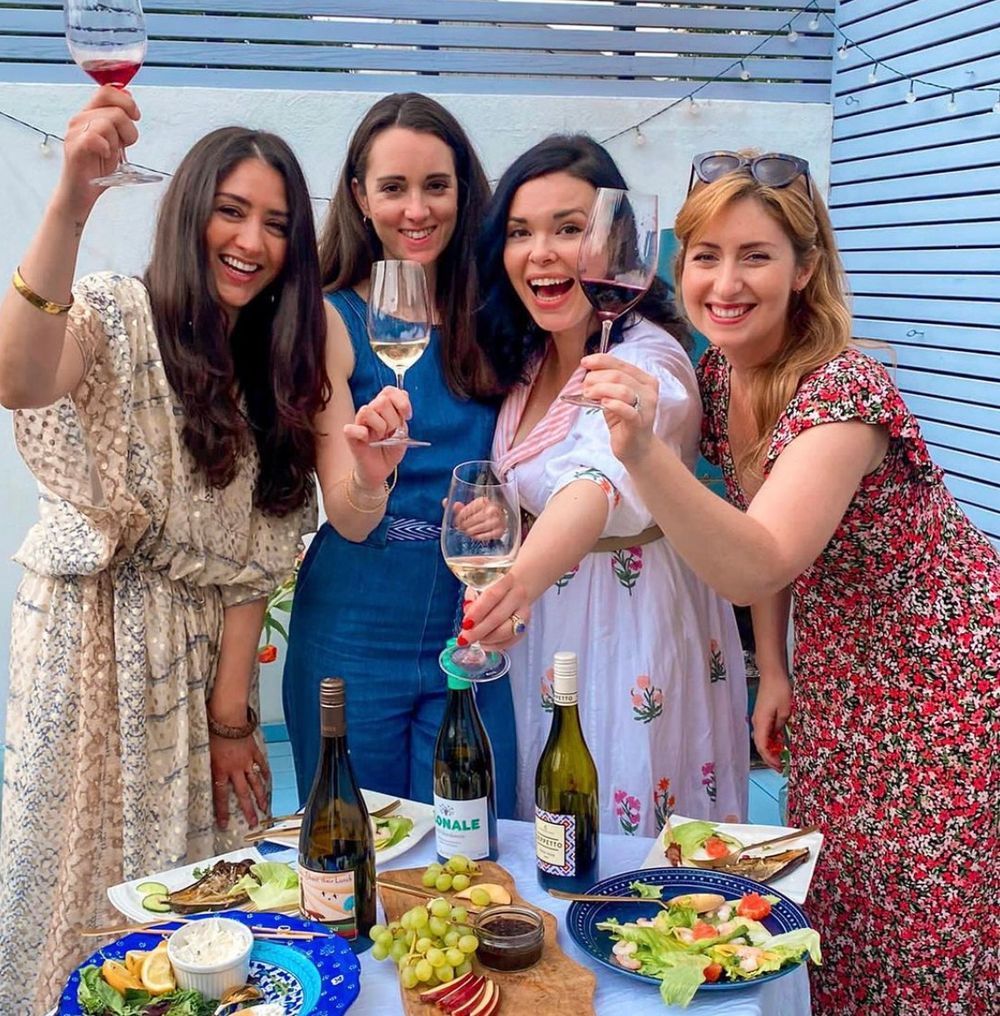
Another innovative campaign – this time for Wine Victoria in Australia
CK: I’ve felt that coming from a non-traditional route to wine communication (via social media) has been met with some resistance and that I’ve had to prove myself more than others. I used to be very open, chatty and relaxed on social media when I first started, but certain encounters have made me cautious and feel like there are parts of the industry waiting to pounce and criticise – so I am mindful of what I post these days. On the other hand, I have felt really welcomed by the sommelier community and wider lifestyle media which has been brilliant for my personal growth and business opportunities.
SL: My experience of working in the wine industry has been an overall positive one, and that’s down to connecting with some brilliant women and men. That’s not to say there haven’t been some disappointing moments, like when an expensive bottle was hidden from me at a tasting when all of my male counterparts were tasting it. As women, we are often held to a higher standard and have to prove ourselves more with our credentials. The same issues that women experience in any male-dominated industry undoubtedly exist in this one. I’m hopeful, however, that the wine world is opening up beyond the traditional demographic, making it a more welcoming space for everyone.
What advice would you give to other women looking to have their own voice and business profile in the trade?
SL: It can be hard when you know your stuff, but you don’t feel like you’re being seen or heard. That’s why social media can be a great platform to develop your voice in the trade. Don’t forget to get out and about though – trade tastings are brilliant places to learn and network.
LB: Find your tribe that you trust, network and build your brand by being authentic to yourself – there’s only one you – and don’t be scared of someone saying no or not liking what you’re doing, people will and it’s not the end of the world.
CK: Spend time investing in and nurturing your network. You never know what that conversation, coffee, get together will lead to.
HM: Jump into networking, you can join Queena Wong’s mailing list as a start, she’s doing an awful lot for women in wine from her own initiative. It’s part of the ethos to share sharing contacts, job offers and advice, because a rising tide lifts all ships.
You place a lot of emphasis on creating strong and regular social media content – how well respected do you think social media is by the business side of wine industry?
SL: It’s taken its time, but it’s becoming more respected… slowly! When used correctly, social media is an incredible tool for business and the leading wine businesses have already embraced it, to their credit.
LB: I think its shifting. Even in the few years I’ve been in wine it’s changed hugely with those who didn’t trust it at first now embracing it as the place of connection and communication it is. I wrote a piece on this for City AM recently, the companies who got on board with Instagram early on have reaped the benefits with their growing audience and next generation consumers.
CK: Not everyone respects it but I think most have realised that it is a necessity for 99% of businesses.
What would be your overall advice to a wine business looking to improve their social media and comms strategy?
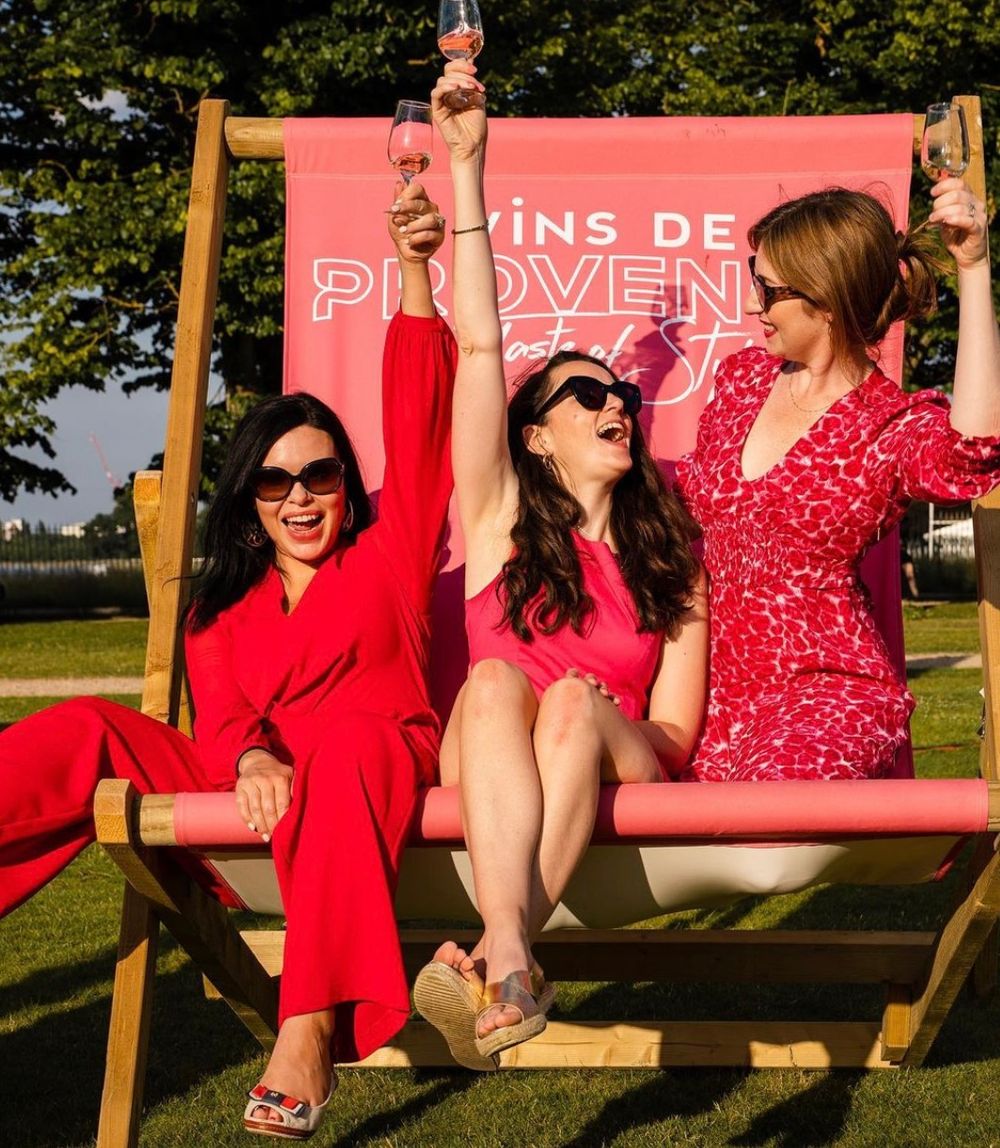
The Wine Collective looks to work hard with each wine client to offer them fresh content that works for their brand and their target audience
LB: Hi, we’re The Wine Collective!
HM: Any form of content marketing, whether it’s a website blog, YouTube’s, Instagram, etc takes time to build, so if it’s a route you want to go down, you have to be prepared to spend a lot of time on it and to produce content consistently. If it’s just an afterthought, then it won’t work. It’s not easy for people to spare so much time which is why they often hire specialists. Furthemore, social media has led to business owners getting personal with their marketing, this means sharing their journey, their ‘why’ and what people are often scared of putting online – their face!
SL: Be personal, show your face and engage, engage, engage.
CK: don’t expect instant results. Social media requires huge time investment and advance planning. Find your voice and your style and keep consistent.
What next for you all? What ambitions to you have as Wine Collective?
SL: In the past 12 months, we’ve been fortunate enough to partner with a host of premium and respected wine regions and businesses. We want to continue on this trajectory, working with clients who we genuinely align with and feel passionate about. We hope we can make more people see the value in our style of wine communication and perhaps inspire a few breakthrough moments.
HM: We are all keen to look at ways to promote wine beyond social media. We have already conducted tastings and are in conversations to do more. We foresee growing to other forms of media as well such as streaming channels like youtube.
CK: Work with repeat clients and get back in the vineyards altogether. There’s something magical about creating content on the ground.
LB: I’d love us to keep building on what we’ve grown. Keeping working with excellent brands and regions to make wine accessible and interesting and entertaining – while still being excellent supportive friends.
- You can follow the Wine Collective on Instagram on @thewinecollectiveuk and then on the four separate accounts: @skinandpulp; @thelondonwinegirl; @libbybrodie; and @the.British.bouchon.
